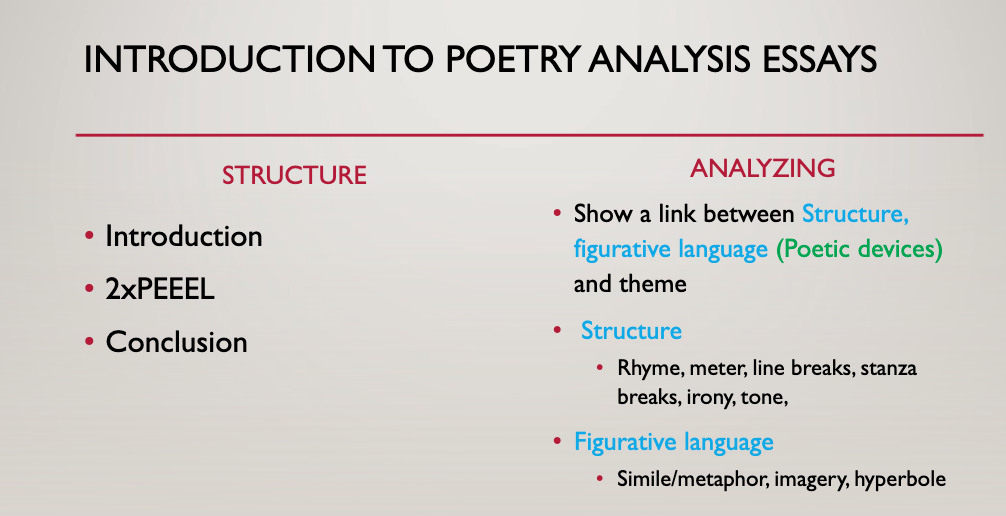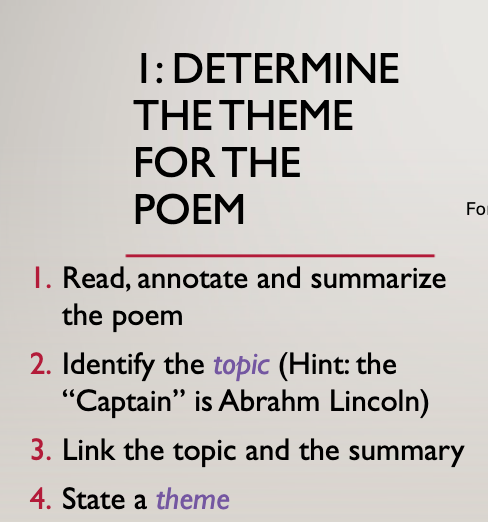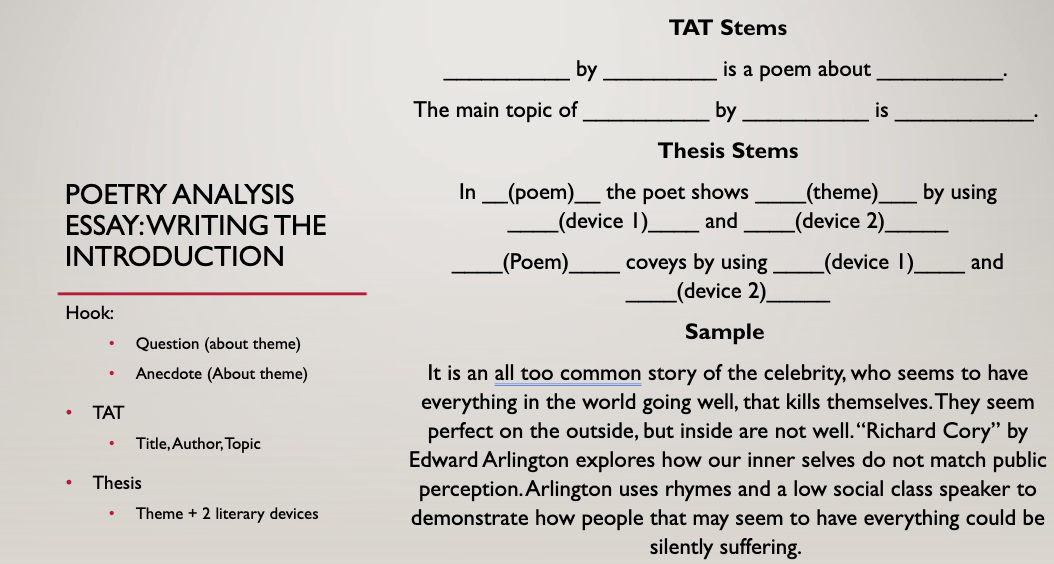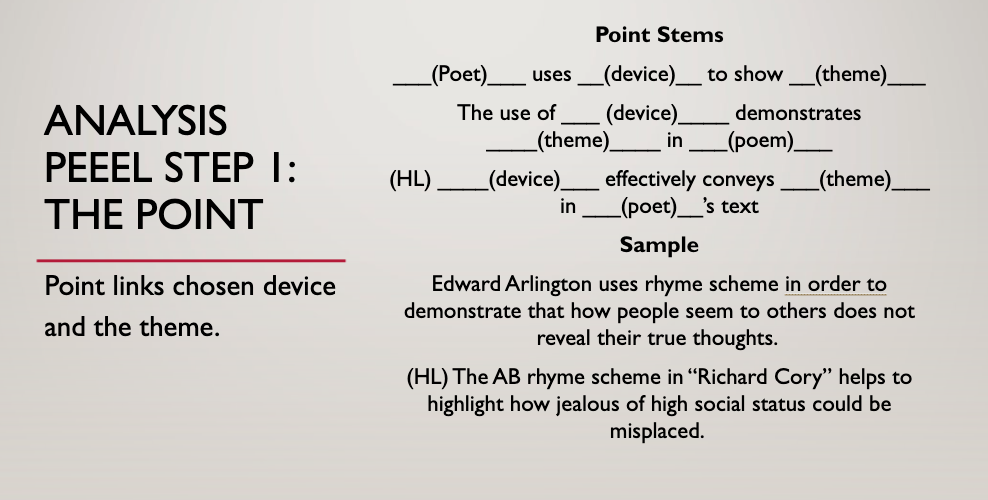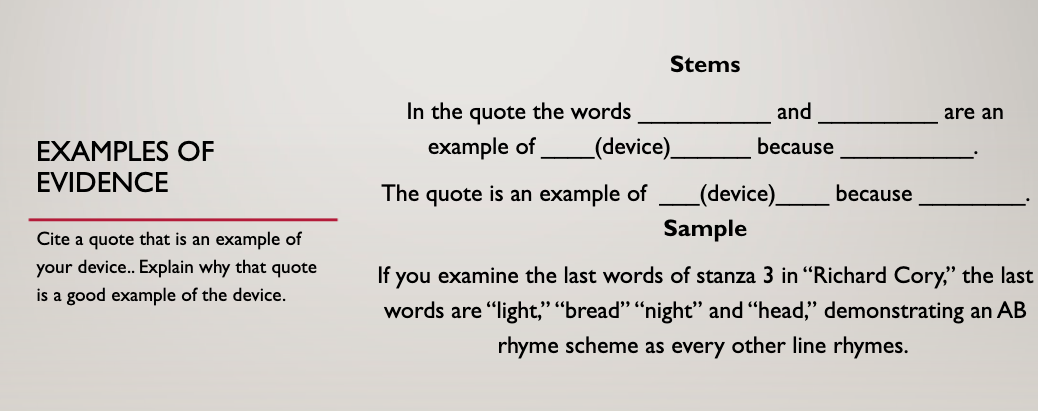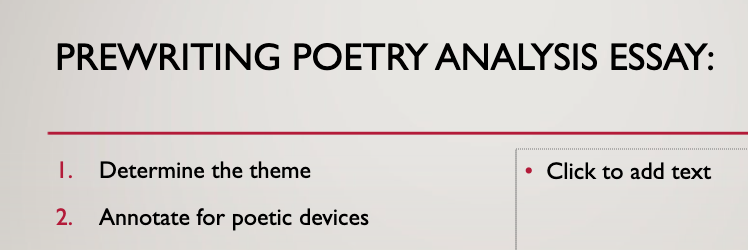stanza – basically paragraphs of the poem. Sometimes, they contain one idea or are simply a few lines discussing a broader concept. They range in length from one line up to unlimited lines.
quatrain – (The four-line stanza) – 4 lines that rhymes
AAAA
AABB
ABAB
ABBA
tercet – set of three lines
Yet stranger things I’ve seen of love [E]
Who healed my wounds by wounding me [F]
The fire in me he quenched before; [G]
The life he gave was the end thereof [E]
the fire that slew eluded me. [F]
Once saved from love, love now burns more. [G]
Sestet – A stanza containing six lines.
Octave – 8 lines stanza.
Here’s the precise rhyme scheme of Giacomo Delentini’s “I’ve Seen Sunny Days”, analyzed line by line:
Rhyme Scheme: ABAB CDCD EFG EFG
(A hybrid of Shakespearean quatrains and Petrarchan tercets)
Line Text Rhyme
1 I’ve seen it rain on sunny days A
2 And seen the darkness flash with light B
3 And even lightning turn to haze, A
4 Yes, frozen snow turn warm and bright B
5 And sweet things taste of bitterness, C
6 And what is bitter taste most sweet, D
7 And enemies their love confess, C
8 And good, close friends no longer meet. D
9 Yet stranger things I’ve seen of love E
10 Who healed my wounds by wounding me. F
11 The fire in me he quenched before; G
12 The life he gave was the end thereof, E
13 The fire that slew eluded me. F
14 Once saved from love, love now burns more. G
Key Observations:
Octave (Lines 1–8): ABAB CDCD
Classic Shakespearean alternating rhymes, presenting paradoxical imagery.
Sestet (Lines 9–14): EFG EFG
Petrarchan-inspired interlocked tercets, deepening the theme of love’s contradictions.
No Couplet: The final lines (13–14) rhyme F/G with earlier lines (10–11), avoiding the Shakespearean GG couplet for a more nuanced resolution.
Volta (Turn): The shift at line 9 (“Yet stranger things…”) marks the transition from external paradoxes to love’s personal wounds.
Delentini’s Poem
Octave ABAB CDCD (Shakespearean)
Sestet Rhyme EFG EFG (Petrarchan)
Volta After Line 8 (Petrarchan)
What is the meter of the poem
Iamb: An iamb is a unit of rhythm in poetry, made up of two syllables. The first syllable is unstressed (soft) and the second syllable is stressed (hard). It’s like the rhythm of a heartbeat: da-DUM. Let’s try it out with the word “allow”—the stress falls on the second syllable, making it an iamb: a-LOW.
Take the word “around” for example. When you say it out loud, you’ll notice that the stress naturally falls on the second syllable: a-ROUND. That’s an iamb. Similarly, in the phrase “the CAT”, the stress falls on the second syllable, making it another example of an iamb.
Answer – iambic Pentameter:
“I’ve SEEN | it RAIN | on SUN | ny DAYS” (Line 1, 4 iambs).
“And SWEET | things TASTE | of BIT | ter NESS” (Line 5, 4 iambs).
Is there a volta in the poem?
Yet, line 9
What diction contributes to the poem?
Shakespeare’s Sonnet 18
Stanzas:
A sonnet is a type of poem with a specific structure. While we don’t traditionally refer to the sections of a sonnet as “stanzas,” it is divided into distinct sections.
Quatrains:
A quatrain is a stanza of four lines.
Shakespearean sonnets are composed of three quatrains.
Therefore, there are three quatrains in Sonnet 18.
ABAB
CDCD
EFEF
GG
Sestets:
A sestet is a stanza of six lines.
Shakespearean sonnets do not have sestets.
Sonnet 18 has zero sestets.
Couplets:
A couplet is a stanza of two lines.
Shakespearean sonnets end with a single couplet.
Therefore, Sonnet 18 has one couplet.
In summary:
Stanzas: We can say that the structure is divided into sections, rather than stanzas
Quatrains: 3
Sestets: 0
Couplets: 1
